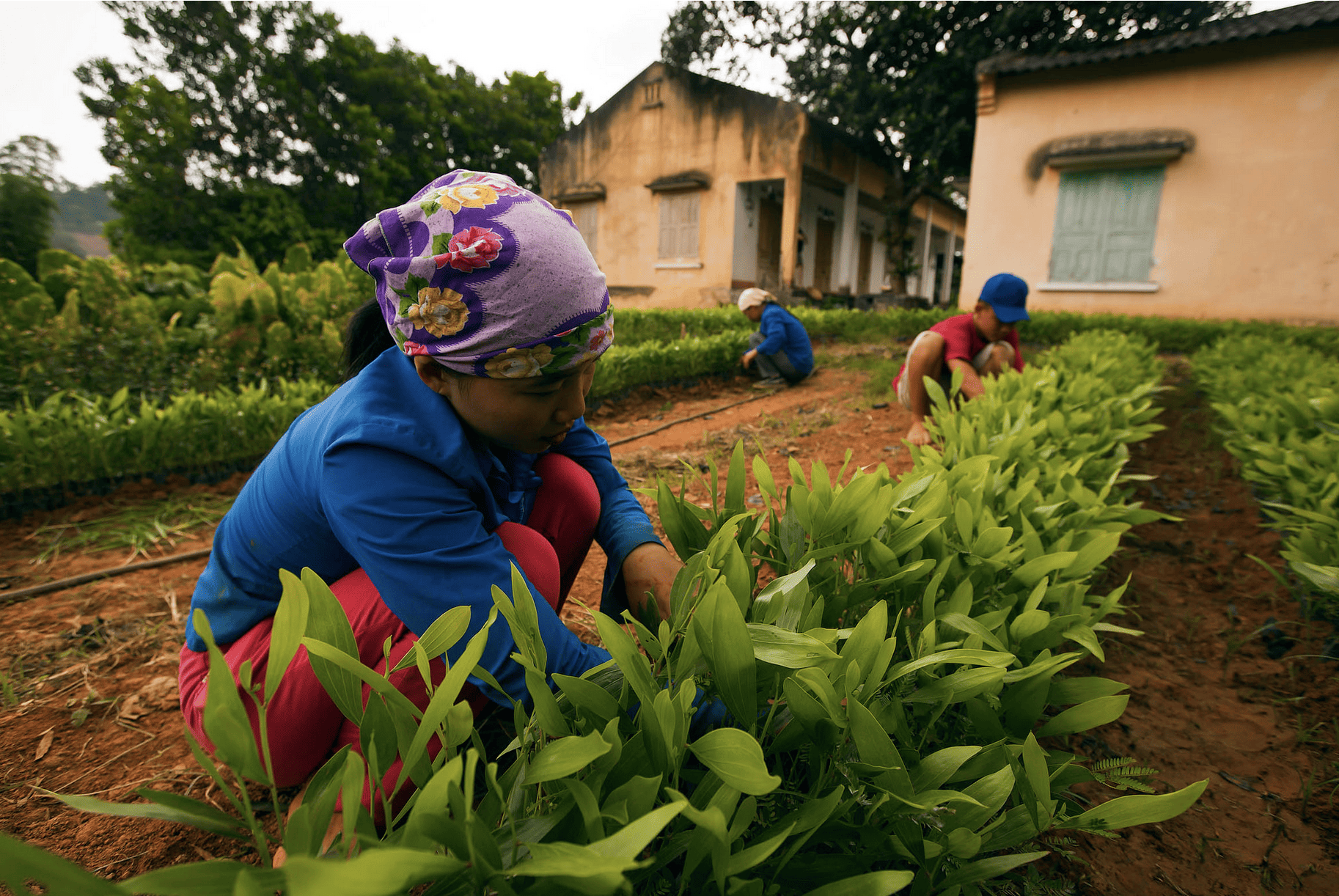
Making sense of the complex
solutions to agriculture-related
deforestation
The global deforestation rate is estimated at roughly 10 million hectares per year, with nearly 90 percent of forest loss driven by agricultural expansion. The global food system produces as much as one-third of global greenhouse gas emissions. These alarming statistics highlight the need to ramp up efforts to make food systems more sustainable. Taking action to remove forest conversion from agricultural value chains offers significant potential to achieve climate mitigation, enhanced livelihoods and food security.
The global community has started to focus on halting deforestation from agriculture commodities and transforming food systems as a key solution to turning the tide on deforestation. Discussions of integrated landscape approaches, climate finance opportunities and tools that may be used to assess and mitigate forest risks throughout agricultural supply chains are growing as countries, international organizations and private businesses take measures to increase the adoption of more sustainable and equitable practices. The UN Food Systems Summit and a set of Independent Dialogues organized by FAO and the Ministry of Agriculture, Forestry and Fisheries of Japan provided a space for countries to exchange on these topics in 2022. Among the topics discussed: the key role of governments in halting agriculture-related deforestation and transforming food systems, as well as emerging climate finance opportunities.
In Côte d’Ivoire, for example, national and local level strategic planning, including the National REDD+ Strategy and regional plans for Green Growth and Zero Deforestation Agricultural Production, provide a framework for sustainable cocoa production, land use and multi-stakeholder engagement.
A prime example of public-private partnerships using responsible business practices to address agriculture-related deforestation is The Cocoa and Forests Initiative. This, and similar initiatives like the Zero-deforestation Agreements in Colombia, highlight the shared responsibility of industry and government to achieve food systems transformation. Public labelling, as developed by Costa Rica, can further enhance market benefits for committed companies, facilitating consumer support for forest-positive business practices.
Emerging climate finance opportunities will also play a significant role in scaling up forest-positive agriculture. Innovative finance strategies include new investment mechanisms, strategic use of public investments, de-risking private investment and Results-based Finance. Examples from the public and private sectors show growing efforts to implement these actions, particularly through REDD+ Results-based Payments (RBP). Argentina, for example, uses REDD+ RBP proceeds to reduce competition and manage trade-offs between livestock farming and forests. The Indonesia Environment Fund has used various financial instruments to support environmental activities.
“Recognizing the mutual benefits between forestry and agriculture, decoupling deforestation from agriculture supply chains and transforming agri-food systems is essential for the world to win the quadruple challenge of food security, economic, biodiversity and climate crises,” says Serena Fortuna, FAO REDD+ Team Leader and UN-REDD Management Group member. “UN-REDD is delivering a range of technical assistance to support tropical forest countries to move in this direction, and these countries – supported by international initiatives and programmes like UN-REDD – are now shifting the needle by taking bold steps to turn these commitments into practical actions.”

